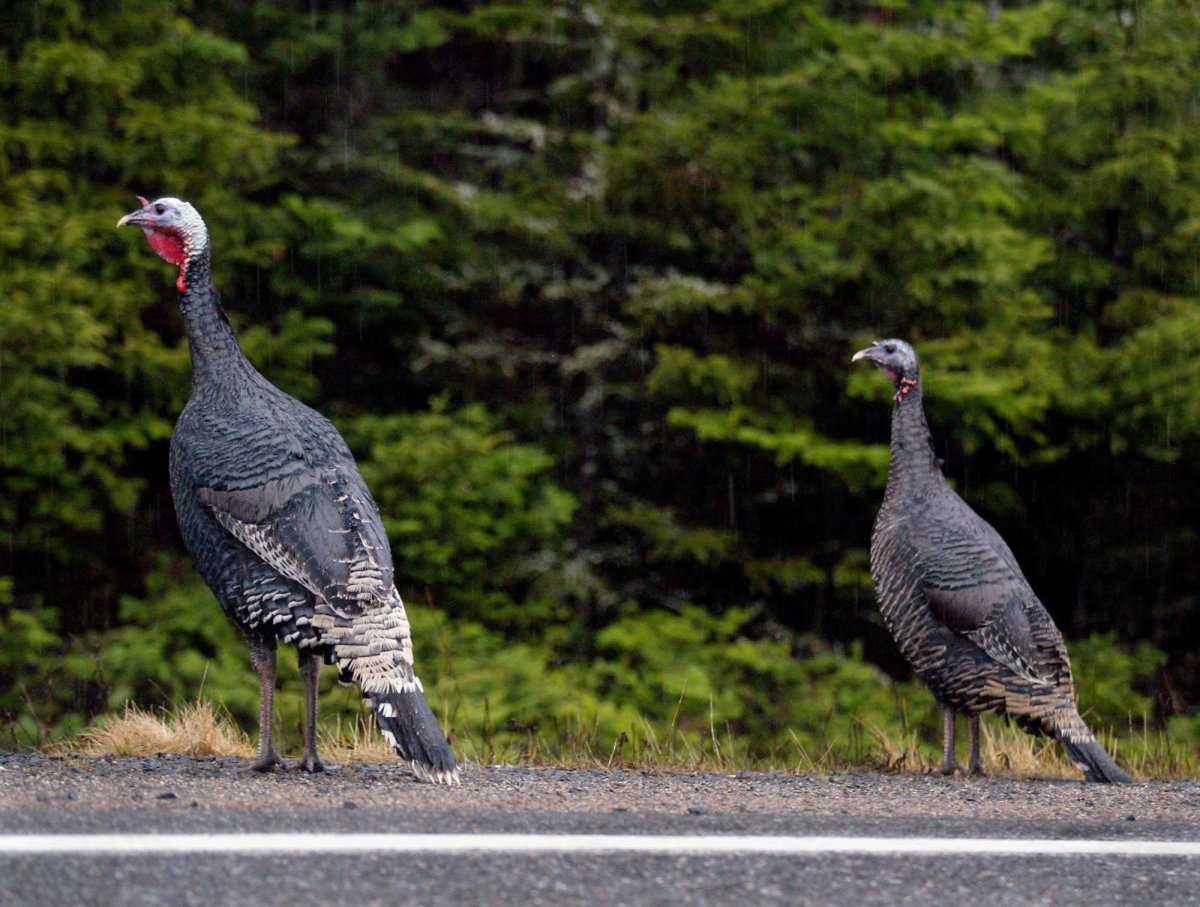Widely used pesticides blamed for decimating honeybee and other pollinator populations have found their way into wild turkeys in Ontario, according to a new study from Canadian researchers.

Scientists with the Ontario Veterinary College at the University of Guelph and Environment and Climate Change Canada examined the livers of 40 wild turkeys in southern Ontario and found nine had detectable levels of neonicotinoids, a group of insecticides that coat the seeds of cash crops such as corn and soy beans to protect them from pests. The insecticide is taken up by the plant and distributed through its tissue as it grows.
Researchers found two types of neonicotinoids – clothianidin and thiamethoxam – in the turkey livers, according to the study published in the June issue of the journal Environmental Science and Pollution Research.
Studies have shown that various neonicotinoids used to protect crops have contributed to the die-off of honeybees and other pollinators, like bumblebees, and also led to death and reproductive problems among smaller birds.
READ MORE: Health Canada wants to phase out pesticides to save the bees
The insecticides, which are water soluble, have spilled over from crops into plants such as maple trees, dandelions and clover, research has indicated. While there have been increasing studies of the pesticides’ impact on insects and plants, there are far fewer studies of the effects of neonicotinoids on wildlife.
The latest findings on wild turkeys are concerning, the study’s lead author said.
VIDEO: Toxic pesticide used on grain no longer allowed

“No levels of neonicotinoids can be good for any animal,” said Amanda MacDonald, who performed the research while a doctoral student at the University of Guelph.
“It’s just a matter of finding out how it’s affecting them, but we know they’re killing bees, insects, and birds.”
READ MORE: Saving our honeybees with their own DNA: UBC research
MacDonald said the researchers were approached by the Ontario Federation of Anglers and Hunters, who believe there has been a decline in young turkeys where the animals were feeding in areas where neonicotinoids were being used.
This was a baseline study to determine whether or not neonicotinoids were found in wild turkeys, she said. The hope, MacDonald said, is a longer-term study to find out if neonicotinoids are affecting turkeys’ overall health, including reproduction.
VIDEO: Planting bee friendly gardens can help bee populations in Southern Alberta

Ontario has placed restrictions on the use of neonicotinoids, while the European Union in April banned three main neonicotinoids from outdoor use.
Other studies have found neonicotinoids in birds such as partridges, quail and pigeons. A study on white-crowned sparrows has shown that small amounts of neonicotinoids have affected reproductive efforts and body mass.
READ MORE: Planting bee-friendly gardens can help bee populations in southern Alberta
Much more research has been done on honeybees, with studies suggesting neonicotinoids reduce lifespans by nearly 25 per cent. Large doses in laboratory settings led to paralysis and death by blocking signal transmission between neurons in the brain, research indicated.
Honeybees exposed to neonicotinoids take longer foraging trips as they age, suggesting they are unhealthy, can’t fly as fast or have a hard time remembering how to fly home, research has shown.
Other research has shown neonicotinoids negatively affect queen bumblebees from starting new colonies, thus leading researchers to fears of extinction in the near future.
VIDEO: Animation illustrates the decline in the bee population



Comments